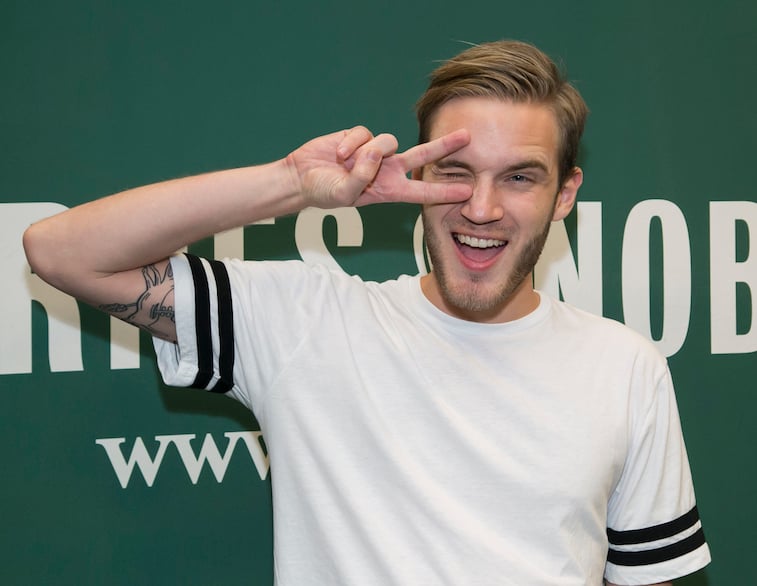How YouTube’s Biggest Star Exposed an Even Bigger Online Scam
YouTube sensation and internet personality PewDiePie has been part of many controversies over the years.
Although he has attracted a great deal of negative media attention, especially for his occasional use of slurs and language that many find offensive, PewDiePie has also been responsible for shining a light on certain scams and internet rumors — including one, in particular, that managed to gain quite a bit of traction before ultimately slowing down.
How did PewDiePie become famous?

Born as Felix Arvid Ulf Kjellberg in 1989 in Gothenburg, Sweden, PewDiePie was raised by a successful family. His father was a corporate executive and his mother was chief information officer. As a young person, PewDiePie was very interested in art and video games, and although he initially attended college in order to study technology management, he ended up dropping out in 2011.
Although PewDiePie was active on YouTube as early as 2006, he didn’t register an account under his current username until April 2010.
PewDiePie’s early videos focused primarily on video game commentaries but eventually expanded to include many different types of content. These days, his channel includes everything from “meme review” videos and criticism of different social media platforms to Reddit reviews and “vlogs,” which feature PewDiePie chatting casually with his viewers.
His is one of the most-viewed channels on YouTube and he has become possibly the biggest star ever to emerge from the YouTube platform.
What controversies have PewDiePie been involved in?
From the very beginning of his YouTube career, PewDiePie has been criticized for the use of profanity in his videos. Many of his video game reviews are sprinkled liberally with four-letter words. However, PewDiePie has been subject to some more serious criticism over the years – including accusations of anti-Semitism.
Many people have also called out the YouTuber’s occasional jokes about rape and the use of several racial epithets in his videos. Critics have stated that PewDiePie’s videos are the “gateway to the alt-right” due to some of the alt-right channels that he follows and recommends.
In spite of the criticism, much of it very valid, PewDiePie has remained a hugely popular social media presence, with literally thousands of followers across YouTube and Twitter.
PewDiePie exposed the BetterHelp scam
In late 2018, PewDiePie called out the online counseling service known as BetterHelp. The site claims to offer mental health counseling but as PewDiePie pointed out, their terms of service are more than a little bit shady. He discussed the fee for the site’s services, which are promoted as being $65 per week but end up being an up-front fee of nearly $300.
Furthermore, PewDiePie stated that the site doesn’t actually guarantee the background or licensing of any of their online counselors and that BetterHelp expects users to “do their own research” regarding the background and certifications of their online counselor.
PewDiePie called out other YouTube stars
PewDiePie’s comments about BetterHelp went viral almost immediately – both for what he said about the company itself and the scathing comments he made about some other YouTube stars who had been promoting the site and its services.
Famous YouTubers like Shane Dawson and Philip DeFranco had promoted BetterHelp on their channels, inviting viewers to sign up — which PewDiePie claimed was unethical, especially since the YouTube personalities received a special commission for their promotional efforts.
To date, BetterHelp is still up and running, although many of the YouTube stars affiliated with the site have since dropped their sponsorship of the company. It is not known whether or not PewDiePie’s criticism of the site has led to any loss of income or traffic for the company – but it certainly made headlines for a while.


